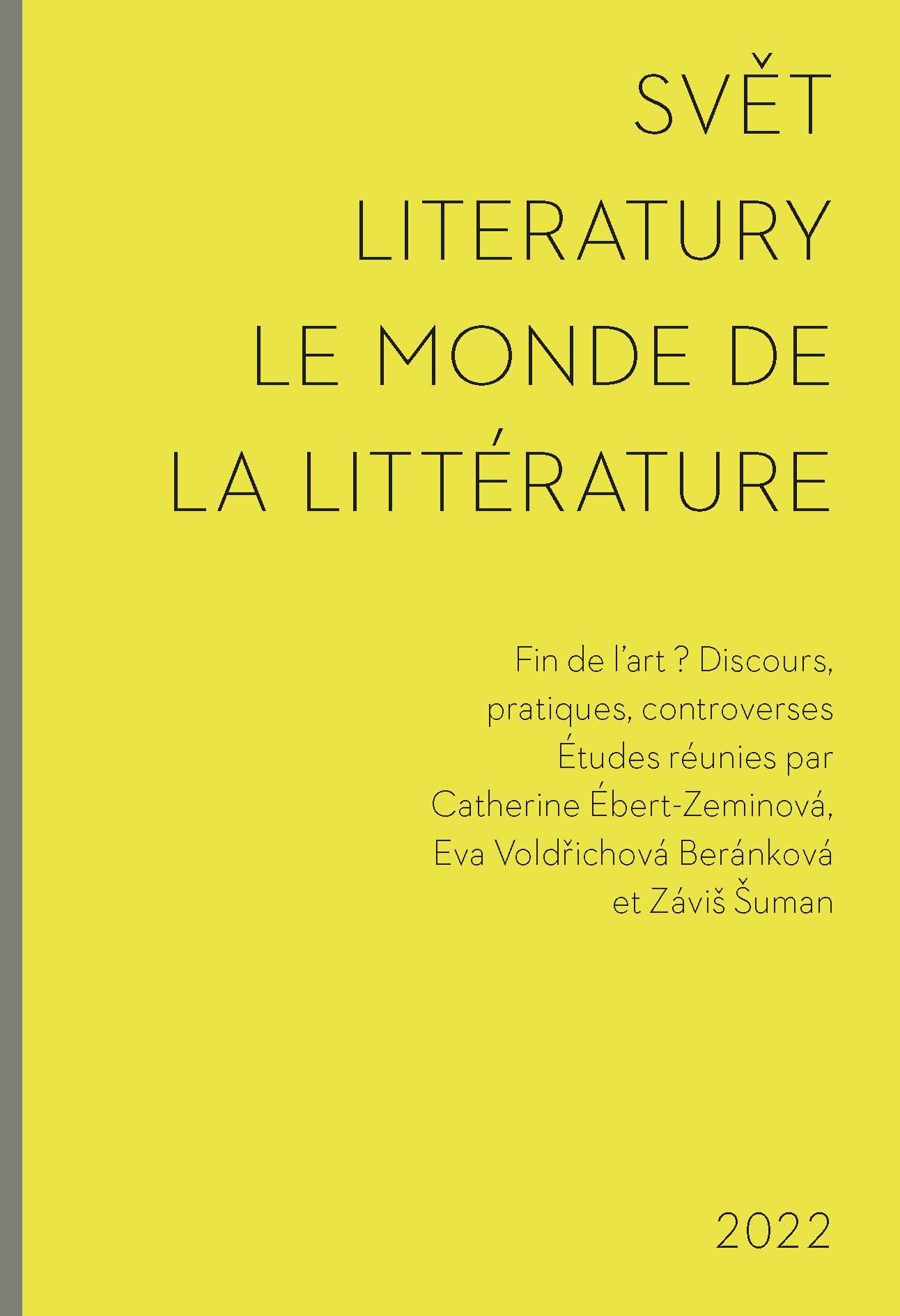De la Fin de l’art au Musée Imaginaire:
From the End of Art to the Imaginary Museum:
Malraux Reader of Hegel
Author(s): Eva Voldřichová BeránkováSubject(s): Philosophy, Studies of Literature, Theory of Literature
Published by: Univerzita Karlova v Praze - Filozofická fakulta, Vydavatelství
Keywords: End of Art; Imaginary Museum; G. W. F. Hegel; A. Malraux; Philosophy of Art
Summary/Abstract: The article summarizes the major topoi of Hegelianism that Malraux adopts in his texts on art (The Voices of Silence, The Imaginary Museum and The Metamorphosis of the Gods), before focusing, in particular, on Malrucian interpretation of the end of art and on the links that the latter has with his own concept of the imaginary museum. According to some of Hegel’s exegetes (Bernard Bosanquet, Martin Heidegger, Jean-Luc Nancy, Thierry de Duve, but also Theodor Adorno, Arthur Danto, Joseph Kosuth, Rainer Rochlitz or Jan Patočka), the end of traditional art paves the way for its retrospective conceptualization, its reconfiguration in the public space, as well as for very exciting debates on the nature of contemporary art, post-religious, post-national, post-historical in a way. The article illustrates the original place that Malraux occupies within this “positive” and creative interpretation of the end of art.
Journal: Svět literatury
- Issue Year: XXXII/2022
- Issue No: Special
- Page Range: 68-77
- Page Count: 10
- Language: French

